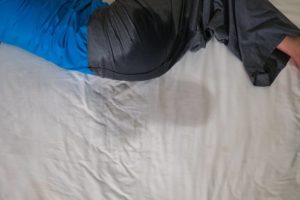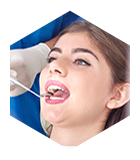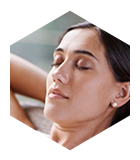The Connection Between Adult Bedwetting and Sleep Apnea
August 28, 2021

While bedwetting is more common among toddlers and the elderly, it can still happen to younger adults. This can be quite embarrassing, especially when it occurs on multiple occasions. It turns out that there is a possible connection between nighttime accidents and sleep apnea. Continue reading to find out how sleep breathing problems can contribute to incontinence.
What is Sleep Apnea?
The most common form of sleep apnea is Obstructive Sleep Apnea (OSA). It results from a partial or full blockage of the airway that triggers frequent stoppages in breathing. This causes breaks in sleep that prevent the usual benefits of a full night of rest.
Statistics show that 7% of people with OSA are subject to bedwetting. As the condition worsens, the frequency of the bedwetting can increase.
Sleep Apnea and Nocturia
The increased urge to urinate at night is called ‘nocturia’ (frequent nighttime urination). Data shows that 84% of people with OSA deal with nocturia, while 82% are also loud snorers (a common trait among people who suffer from OSA). While it’s common to make one or two trips to the restroom a night, people with untreated OSA may have to visit the restroom up to 6 times.
While nocturia and bedwetting aren’t the same, the common denominator is that they involve an urge toward nighttime urination. Although researchers have yet to determine exactly how and why OSA contributes to nighttime incontinence, they’re certain it’s connected. Thus, if you’re having this problem, you should request a sleep test.
How Sleep Apnea Can be Treated
For years, patients have relied on wearing a CPAP (continuous positive airway pressure) machine nightly to treat their sleep apnea. However, the apparatus is considered by many to be rather bulky, loud and inconvenient. Thankfully, there is a more user-friendly way to get relief: with a custom oral appliance.
The device is designed specifically to comfortably fit the contour of your mouth. It works to gently shift your jaw forward to allow for better tongue positioning and airflow. Therefore, you can get an uninterrupted and more restful night of sleep.
Getting Started
If you suspect that you’re dealing with a form of sleep apnea, or you’ve been struggling with frequent bedwetting or nocturia, bring it to your doctor’s attention so you can take a sleep test. Once you’re diagnosed, a sleep dentist can help you rest better by providing customized care to meet your needs. As a result, you’ll be able to function more efficiently throughout the day and lead a healthier life.
About the Author
Dr. James T. Sierra earned his dental degree from the University of Texas Health Science Center at San Antonio. Throughout his career, he has paid careful attention to the evolving trends in dental care. Thus, he has maintained membership with such organizations as the Texas Dental Association and the Academy of General Dentistry. One of only 200 dentists nationwide trained in Nightlase non-surgical snoring treatment, Dr. Sierra helps his patients overcome OSA at Friendswood Dental Group, and he can be reached for more information or to schedule a visit through his website.
No Comments
No comments yet.
RSS feed for comments on this post.
Sorry, the comment form is closed at this time.

 Check-Ups
Check-Ups Dental
Dental 3-on-6™
3-on-6™ Cerec® Same-Day
Cerec® Same-Day Full Mouth
Full Mouth Invisalign®
Invisalign® Cosmetic
Cosmetic Sedation
Sedation